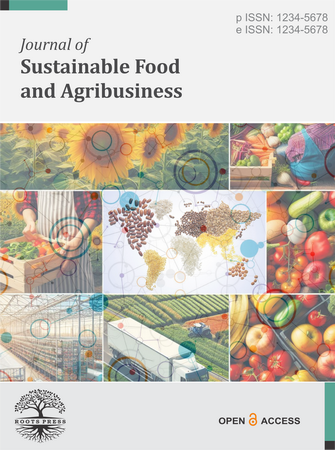Investigating the allelopathic interference of chenopodium album l. leaves on maize and mung bean and its implications for sustainable agribusinesses
DOI:
https://doi.org/10.12345/foodsustainability.01.1.671Keywords:
Seedling, Growth Germination, Allelopathic effect, Chenopodium album L., Agribusiness, SustainableAbstract
The present study elaborates on the Allelopathic effect of Chenopodium album L. on seed germination and seedling growth of Maize and mung bean. The experiment was done in the Department of Agronomy, Bahauddin Zakariya Multan, Pakistan. The experiment used the Petri dish method, which had six different concentrations with three replications. Results are precise that the leaf powder extract of C. album has a varying impact on the seed germination of maize and mung bean, while seedling growth showed an inhibitory effect for both test species. Similarly, both test species affected radicle length more than the plumule length. Moreover, allelopathy, producing allelochemicals, empowers agribusiness sustainability by reducing environmental damage, enhancing soil health, introducing agribusiness product development, sustaining agribusiness practices, and, above all, achieving food security. This existing study suggested that this weed exhibited a strong allelopathic potential, promoting seed germination and plant growth. Along with this, the findings of this weed underline its potential to enhance agribusiness sustainability through various organic applications.
Downloads
Published
Issue
Section
License
Copyright (c) 2024 Journal of Sustainable Food and Agribusiness

This work is licensed under a Creative Commons Attribution 4.0 International License.


